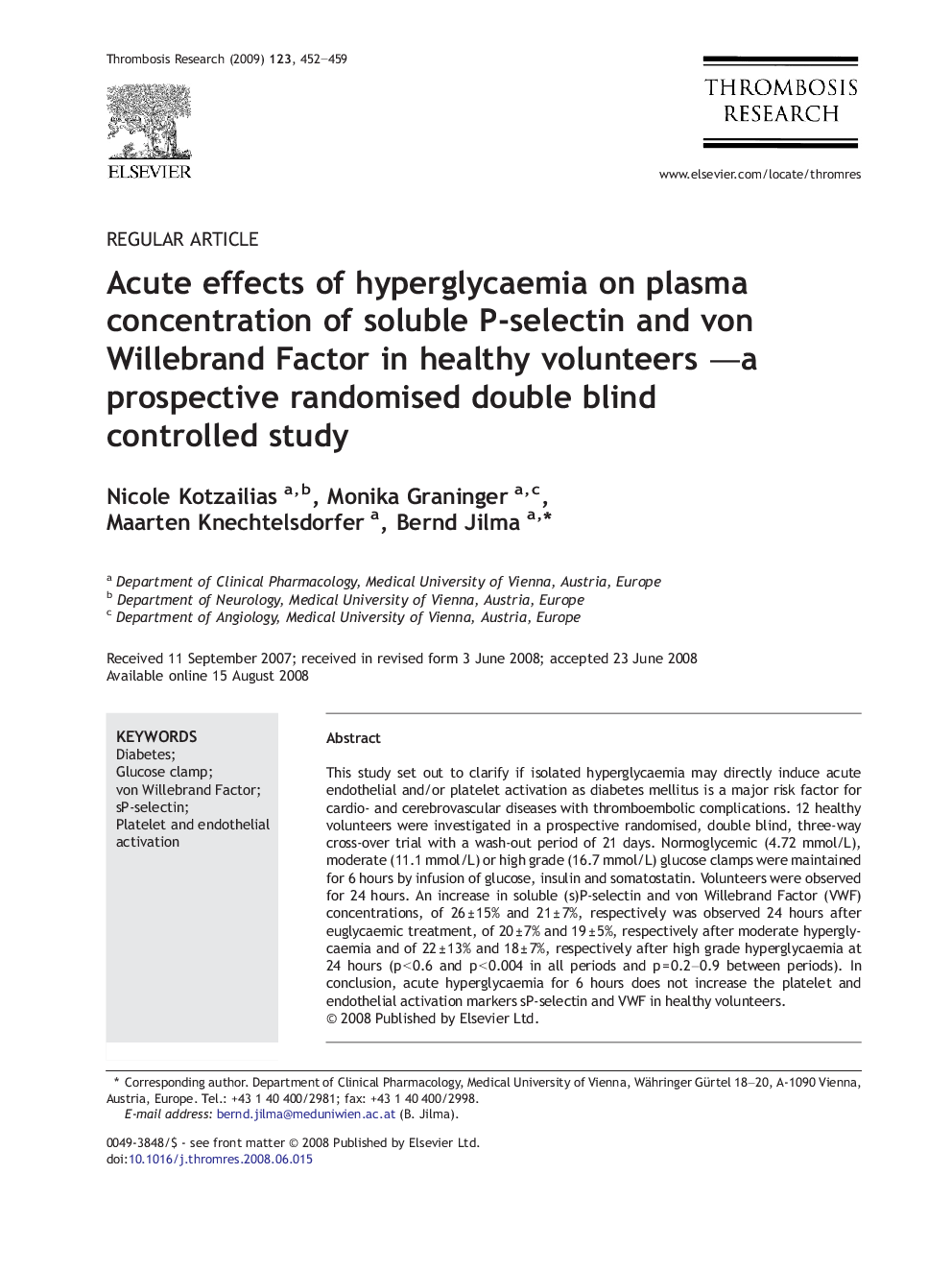| Article ID | Journal | Published Year | Pages | File Type |
|---|---|---|---|---|
| 3029563 | Thrombosis Research | 2009 | 8 Pages |
Abstract
This study set out to clarify if isolated hyperglycaemia may directly induce acute endothelial and/or platelet activation as diabetes mellitus is a major risk factor for cardio- and cerebrovascular diseases with thromboembolic complications. 12 healthy volunteers were investigated in a prospective randomised, double blind, three-way cross-over trial with a wash-out period of 21 days. Normoglycemic (4.72 mmol/L), moderate (11.1 mmol/L) or high grade (16.7 mmol/L) glucose clamps were maintained for 6 hours by infusion of glucose, insulin and somatostatin. Volunteers were observed for 24 hours. An increase in soluble (s)P-selectin and von Willebrand Factor (VWF) concentrations, of 26 ± 15% and 21 ± 7%, respectively was observed 24 hours after euglycaemic treatment, of 20 ± 7% and 19 ± 5%, respectively after moderate hyperglycaemia and of 22 ± 13% and 18 ± 7%, respectively after high grade hyperglycaemia at 24 hours (p < 0.6 and p < 0.004 in all periods and p = 0.2-0.9 between periods). In conclusion, acute hyperglycaemia for 6 hours does not increase the platelet and endothelial activation markers sP-selectin and VWF in healthy volunteers.
Related Topics
Health Sciences
Medicine and Dentistry
Cardiology and Cardiovascular Medicine
Authors
Nicole Kotzailias, Monika Graninger, Maarten Knechtelsdorfer, Bernd Jilma,
